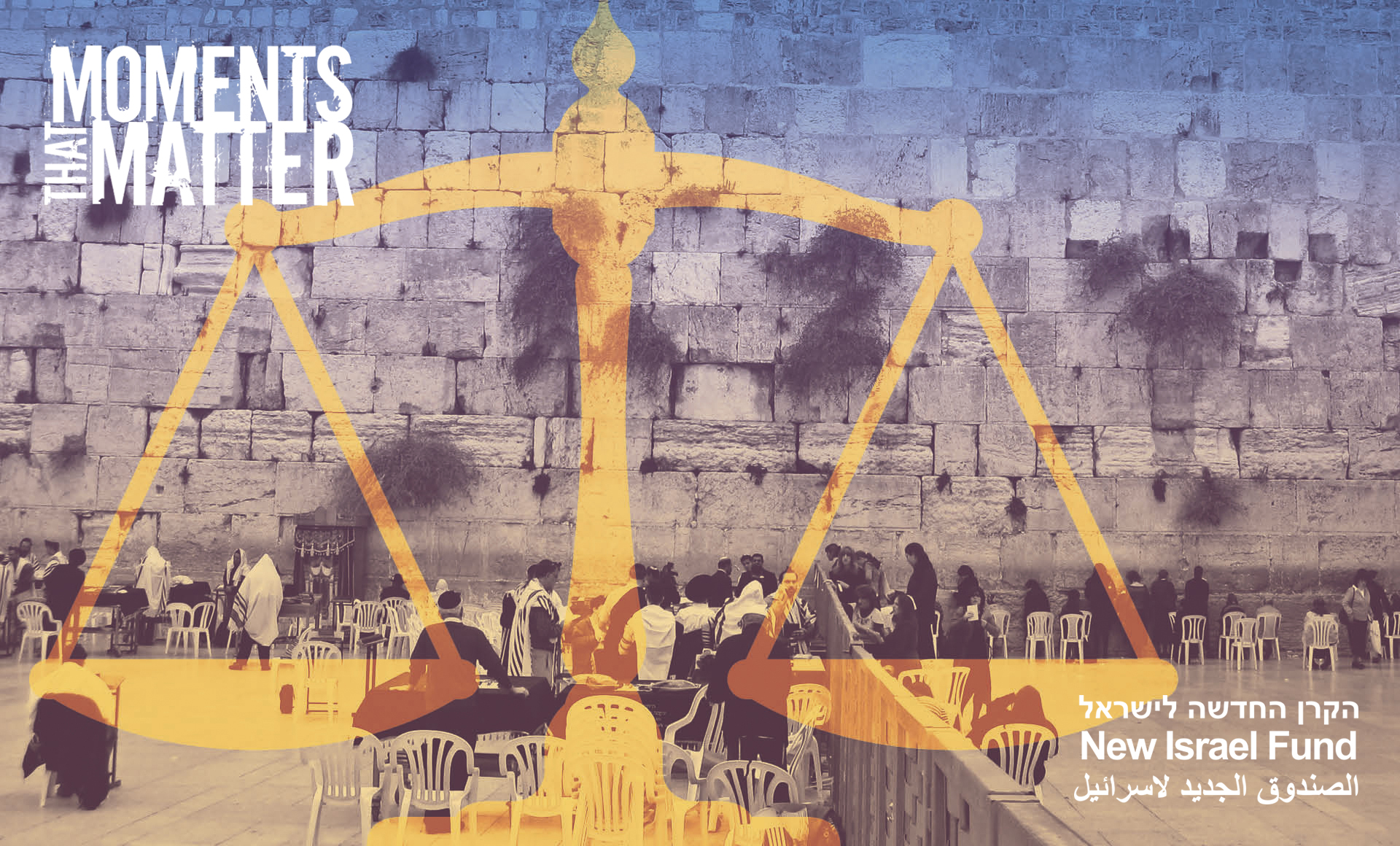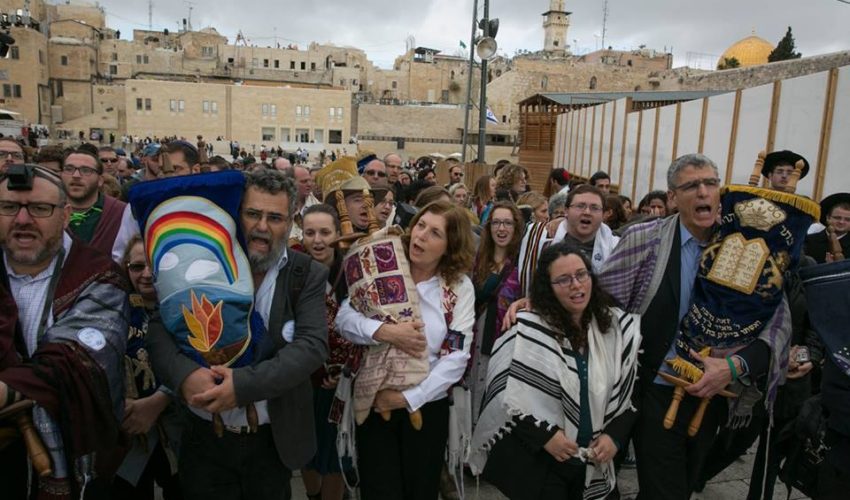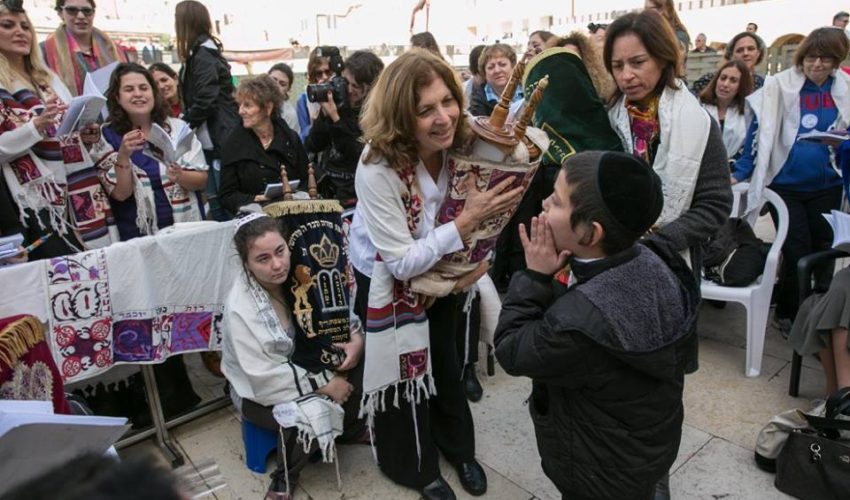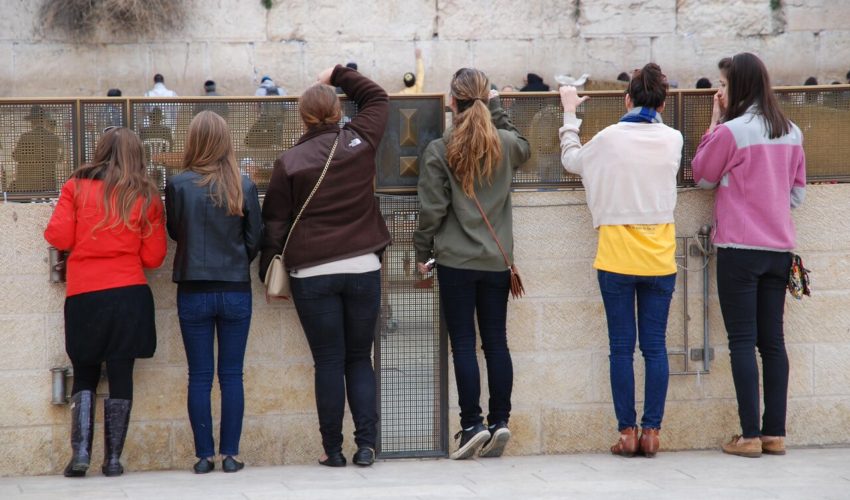
What happens when Prime Minister Netanyahu breaks a promise on religious freedom in Israel?
By reneging on a historic agreement at the Western Wall, the holiest site in Judaism, the Israeli government unleashed a wave of criticism that is bringing together new voices for equality and justice.
The Moment
In January 2016, the Israeli government voted to approve a plan that would establish a space for egalitarian prayer at the Kotel, Judaism’s holiest site. The new space would be integrated into the existing plaza, making clear that visitors to the site had a place to go where ultra-Orthodox rabbis would not unilaterally determine how they had to pray. This breakthrough followed years of negotiations with NIF grantees focused on expanding religious freedom in Israel. It was one of a series of wins that meant less control by ultra-Orthodox rabbis over the lives of Israelis.
Fast-forward seventeen months: In June 2017, Prime Minister Benjamin Netanyahu’s cabinet decided to turn back the clock. They suspended the agreement with respect to the Kotel and froze the government’s efforts to implement it. On that very same day, they voted to advance a bill that barred government agencies from recognizing conversions to Judaism that were performed outside of the state system. This bill would give the ultra-Orthodox Rabbinate exclusive authority over conversion and deny the legitimacy of many Reform and Conservative Jews.
We Responded
This was not the first time supporters of religious freedom in Israel were betrayed. But this time, after so much progress had been made on the Kotel, the insult felt personal. Jews around the world took notice and made sure their voices were heard.
The reversal of the Kotel agreement and the move to limit freedom in religious conversions led to an outpouring of outrage both in Israel and in the United States. Over 1000 people, religious and secular Jews alike, gathered outside the Prime Minister’s residence to protest the broken promises on religious freedom. NIF grantees representing liberal streams of Judaism, like the Israel Religious Action Center (IRAC) and the Masorti Movement vowed to challenge the government’s decisions in court, while their American partners in the Reform and Conservative movements spoke out strongly against Netanyahu’s betrayal. The wave of criticism from both Israelis and American Jewish institutions - including many that are usually hesitant to criticize Israeli policy - was unprecedented.
The Israeli government quickly took note. They announced that the legislation on conversions would not be moved forward for at least six months. And they quickly announced that they were seeking a new compromise agreement on the Kotel.
As efforts to limit the control of the ultra-Orthodox over conversions and the Kotel continue, it is already clear that the backlash against Netanyahu’s moves brought together new constituencies for liberalism and equality. Jews in Israel and abroad, from across the religious and political spectrums, are showing that they are unafraid to challenge Israeli policy and stand up for religious freedom.
We Were Ready
The Kotel controversy is a case study in how NIF and our grantees can push an issue from the margins of the public agenda to its very center. Once considered obscure and unimportant, the fight for religious freedom at the Western Wall became one of the most covered issues in Israeli media’s history thanks to the efforts of groups like Women of the Wall (WOW) and IRAC.
NIF has been funding organizations like IRAC and WOW for thirty years, and with that backing, they have organized, protested, and advocated. Monthly prayer protests were followed by countless legal petitions, drawing the attention of the country, and the world. What happened at the Kotel became a symbol for all the ways in which ultra-Orthodox power was re-shaping Israel into a less liberal society – from limiting who is a Jew, to chauvinistic divorce requirements, and even to the exclusion of women from official government events.
The pressure this movement brought to bear had forced the government to negotiate a solution. And when Netanyahu reneged on that agreement this summer, an entire ecosystem of organizations working on religious freedom was there to mobilize an unexpectedly wide range of voices who understand what is at stake. This moment and its aftermath reshaped the debate on this issue, as it continues to reverberate throughout the ongoing struggle for religious freedom in Israel.



